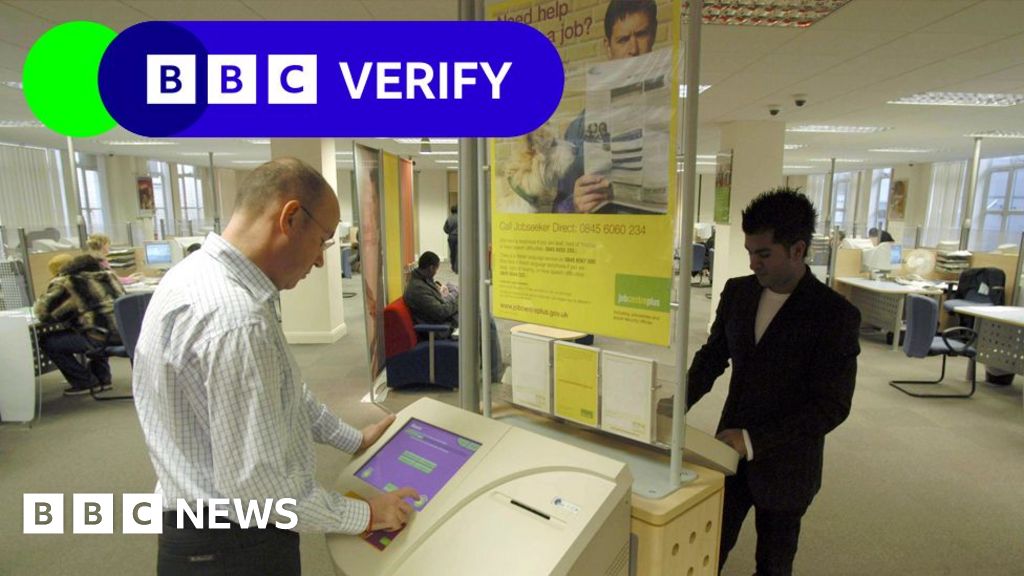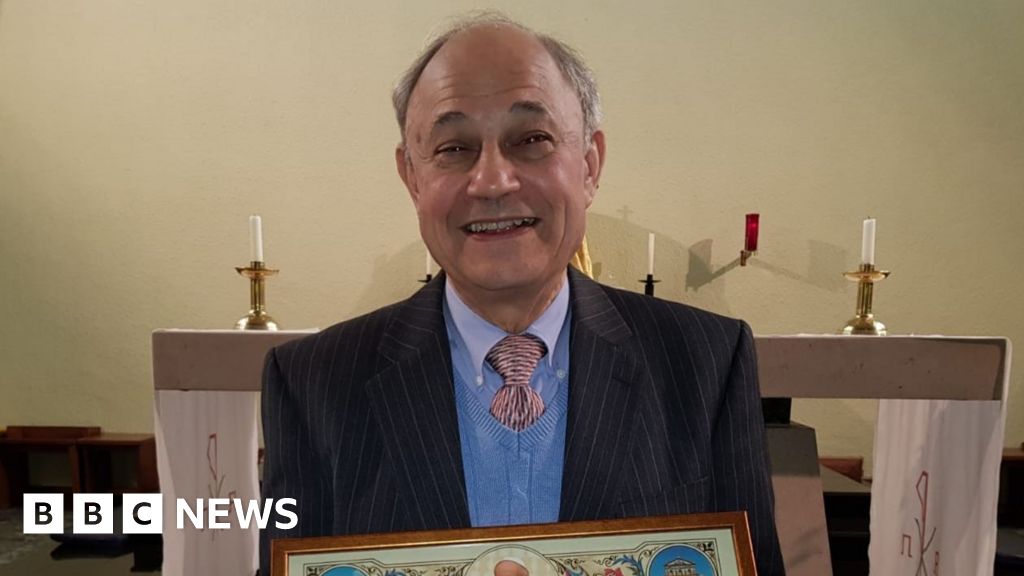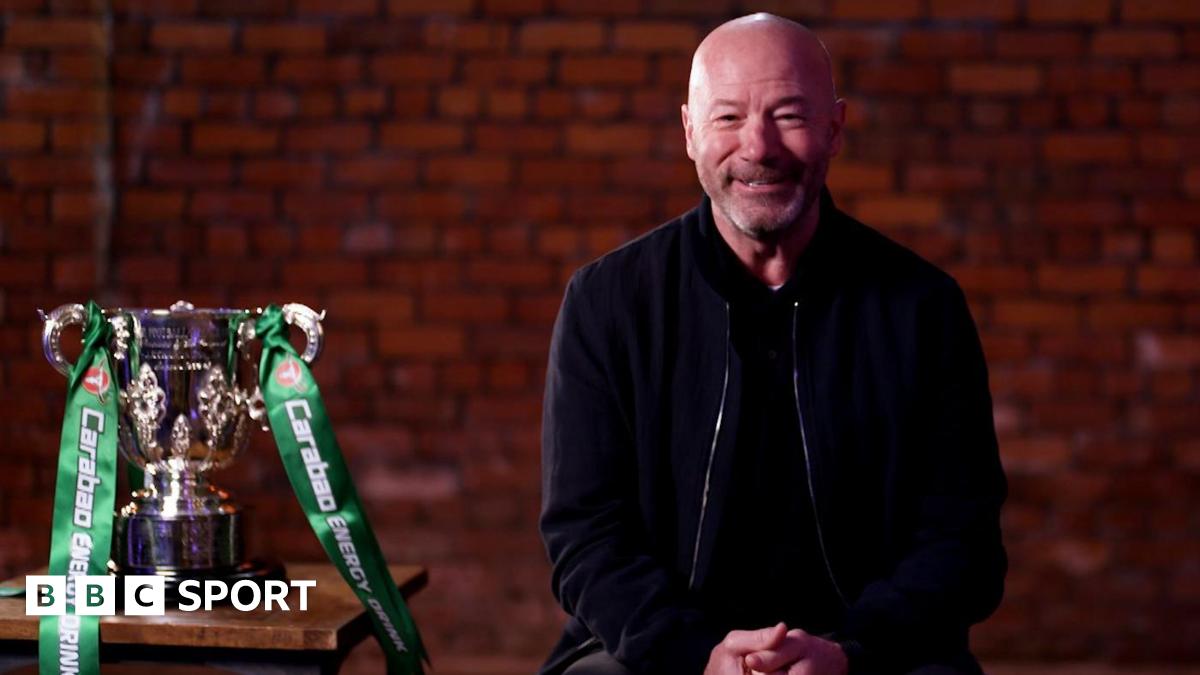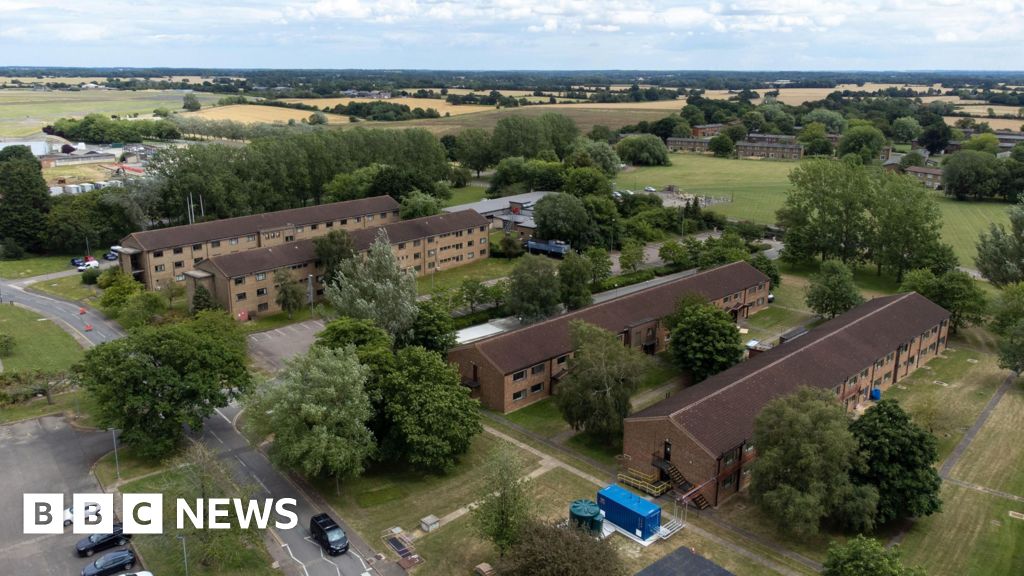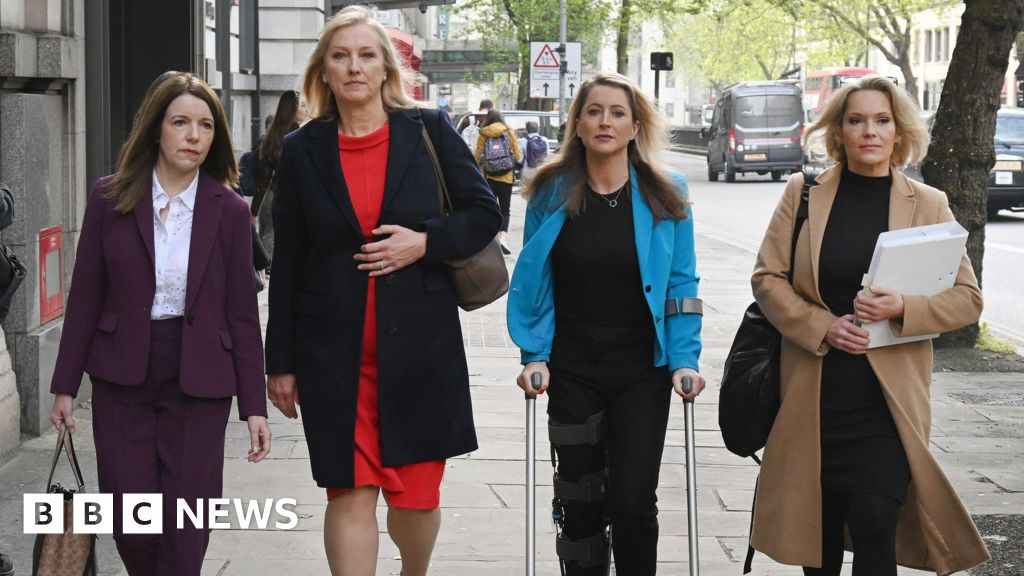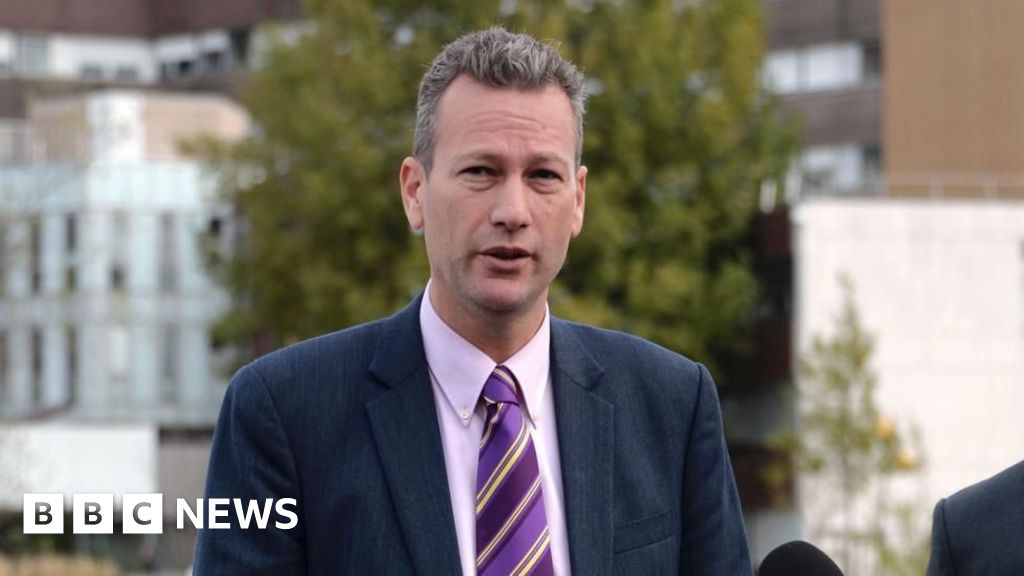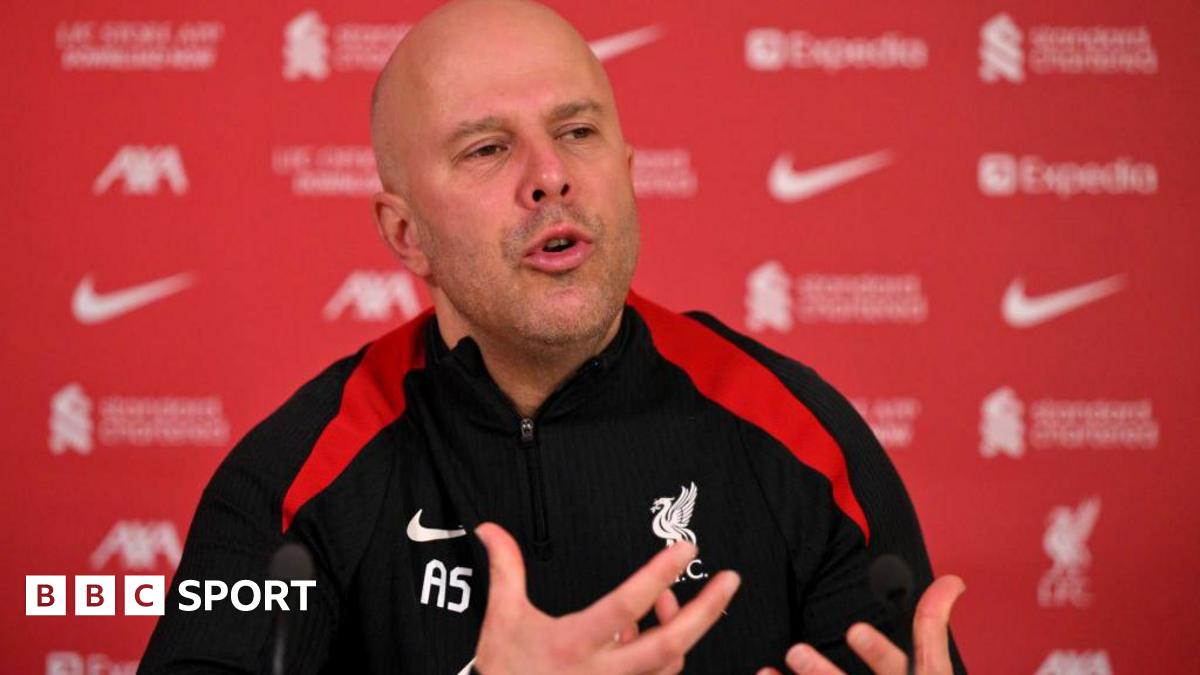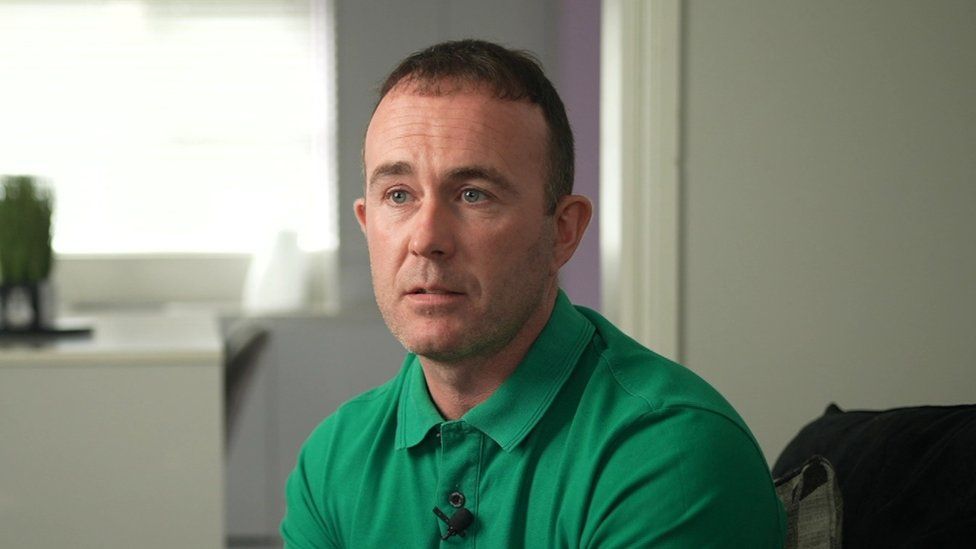
Sean Slane was a boy when his father was murdered
By Julian O'Neill
BBC News NI crime and justice correspondent
The Legacy Act has led to 35 Troubles-era inquests being shut down from 1 May - a move a victim's son believes is a setback to reconciliation.
Sean Slane says his family "need closure" and for years clung to a hope the inquest would help.
But under the act, inquests not at final stages by 1 May have stopped.
From that date a new legacy body, the Independent Commission for Reconciliation and Information Recovery (ICRIR), takes over all Troubles cases.
It is headed by former Lord Chief Justice Sir Declan Morgan.
It has the power to run replacement inquests, as well investigating any Troubles-related incidents in the UK where people were killed or seriously injured.
Its main task will be to provide new information to bereaved relatives and survivors.
The Lady Chief Justice's Office provided a breakdown of inquests which have been affected.
It said there were 35 in total - comprised of 14 which had begun but not reached a findings stage, and 21 others which had not been assigned a coroner to begin.
Some of the inquests cover multiple killings.
Image source, Getty Images
Image caption,More than 3,500 people died during more than 30 years of conflict in Northern Ireland
Gerard Slane, 27, was shot dead by the Ulster Defence Association (UDA) at home in west Belfast in 1988 when his son Sean was a young boy.
The murder involved an Army agent, Brian Nelson, and a new inquest was ordered in 2011, but it was hit by multiple delays, including over the disclosure of security force documents.
"They put us through turmoil year in, year out," said Sean Slane.
"It was just delaying tactics the whole way through."
He had hoped the inquest would have revealed more details about the circumstances behind the murder and ultimately a state apology, as it involved an Army agent within the UDA.
"They say this legacy [act] is for reconciliation.
"Personally, the only way there is going to be true peace and reconciliation is for the truth to come out across the board."
'More grief'
Rather than go to the ICRIR, he said he would campaign for an inquest, noting Labour had pledged to repeal the act if it won the next general election.
The ICRIR, established by the act, will take on cases referred to it or brought by bereaved families and survivors, and has police powers to investigate and bring prosecutions, where possible.
From Wednesday, the Police Service of Northern Ireland (PSNI) will no longer investigate Troubles cases and will "cooperate fully" with ICRIR requests for information.
The ICRIR's commissioner for investigations, Peter Sheridan, said he hoped the new body would be supported over time.
The act has been criticised by Northern Ireland political parties and victims' groups.
The Irish government is also bringing an inter-state case against the UK at the European Court of Human Rights.
"I understand the contested nature of this," said Mr Sheridan.
"But at some stage, if we are all serious about wanting to help victims and survivors, then everybody has to contribute into this.
"Otherwise we have to start again and all we are doing is giving more grief to victims and survivors who in some cases have already waited 50 years."
Northern Ireland Secretary Chris Heaton-Harris said he welcomed the ICRIR becoming operational.
Image source, PA Media
Image caption,Chris Heaton-Harris says the ICRIR will deliver results
"In establishing the independent commission, we are doing something that has eluded successive governments since 1998," he said.
"That is, delivering robust and effective mechanisms for addressing the legacy of the past, and providing more information and answers to families.
"If the independent commission is given an opportunity to demonstrate its effectiveness, I am confident that it will deliver results."
Chief Constable Jon Boutcher said the PSNI would "do everything required" to support the ICRIR's work.
"I am very aware that for victims' families this will be an unsettling and uncertain time," he said.
"Many have sought answers for years and at times have been frustrated in their efforts to learn the truth.
"Should they choose to approach the commission, the Police Service of Northern Ireland will ensure that Sir Declan Morgan and his team have unfettered access to all of the material in those cases."
Grainne Teggart, of Amnesty International, said the act's 1 May "guillotine" had "acted as an incentive for the state to frustrate legal proceedings and continue to grossly fail victims".
"The UK government should be utterly ashamed of the suffering they have heaped on victims by this appalling act," she said.

 10 months ago
56
10 months ago
56
